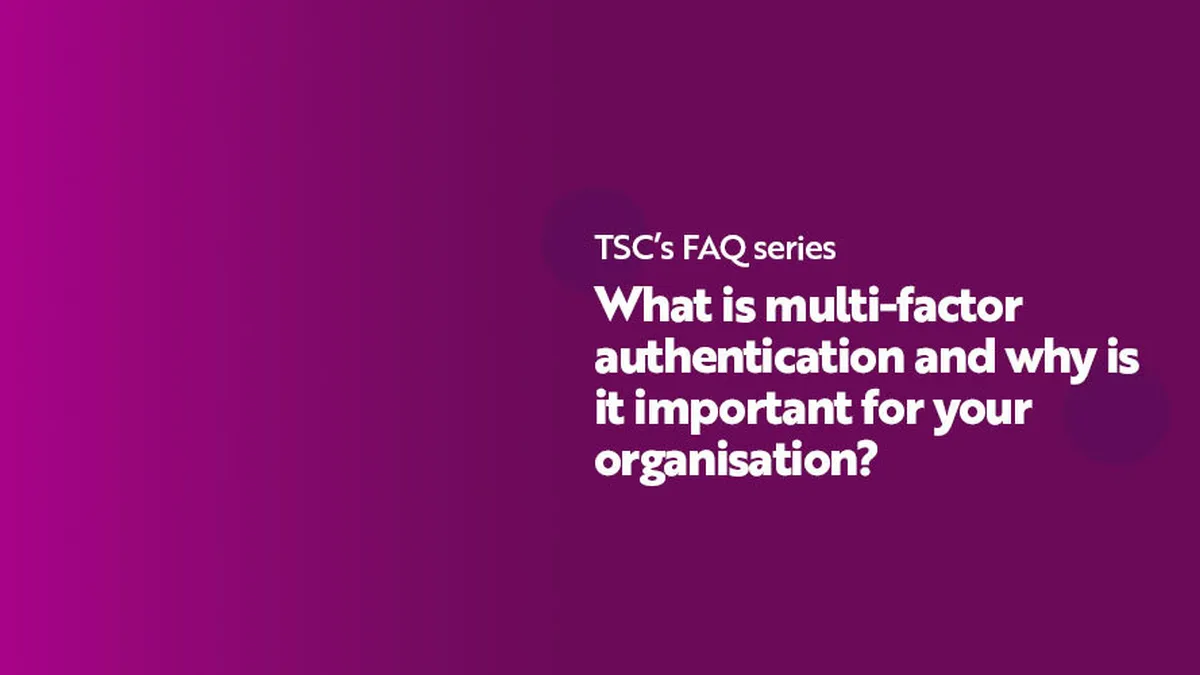
- Employee awareness
- 5 min read

No matter the industry, the location, or the clientele, safeguarding sensitive information is simply paramount for every single organisation. Multi-factor authentication (MFA) is not a new solution but one that needs to be embraced wholeheartedly. Let us look at why.
Among the arsenal of cyber security measures, Multi-Factor Authentication (MFA) stands out as a formidable defence against unauthorised access. In this article, we delve into the intricacies of MFA, its different types, and why it is indispensable for individuals and organisations alike.
Multi-Factor Authentication, as the name suggests, adds an extra layer of security to the traditional password-based authentication process. While passwords are susceptible to being compromised, MFA requires users to provide two or more pieces of evidence to verify their identity, significantly reducing the risk of unauthorised access.
Implementing MFA offers a plethora of advantages for organisations, including:
Implementing robust security measures is non-negotiable … multi-factor authentication offers a potent defence against unauthorised access, providing organisations with greater control over their digital assets and enhancing overall cyber security posture.
By embracing MFA, organisations can fortify their defences, instil confidence among stakeholders, and stay one step ahead of cyber threats in an increasingly interconnected world.
Partnering with a trusted cyber security training and awareness company, such as The Security Company Ltd. (TSC), is crucial. With 25 years of experience, TSC specialises in enhancing security behaviours, fostering a robust security culture, and raising awareness of threats and risks across global organisations.
The dynamic nature of cyber threats necessitates a comprehensive and adaptive cyber security strategy for UK law firms. By understanding the evolving threat landscape and investing in robust training and awareness initiatives, decision-makers can fortify their organisations against potential risks and cyberattacks.
At The Security Company, we specialise in boosting cyber awareness, targeted training, customised projects and role-based solutions. Through our tailored subscription services, targeted and customised eLearning and awareness materials and our behavioural assessments, we're committed to helping organisations like yours instil long-term, security-conscious behaviours.
Our method is distinct. We begin by diving deep into your team's current mindset, pinpointing lax behaviours, security gaps and departments in need of focus and attention. From there, we craft tailored solutions that encourage better cyber practices from your employees. With comprehensive training and seamless integration into your current systems, we're here to fortify your team against modern cyber threats and be your trusted cyber security and awareness partner.
Ready to take the next step?
We can help you to formulate an effective and comprehensive cyber security training and awareness program for your organisation year-round and be your dedicated partner for employee behaviour change and, ultimately, security culture change.
Do not hesitate to contact us for further information.



© The Security Company (International) Limited 2023
Office One, 1 Coldbath Square, London, EC1R 5HL, UK
Company registration No: 3703393
VAT No: 385 8337 51


